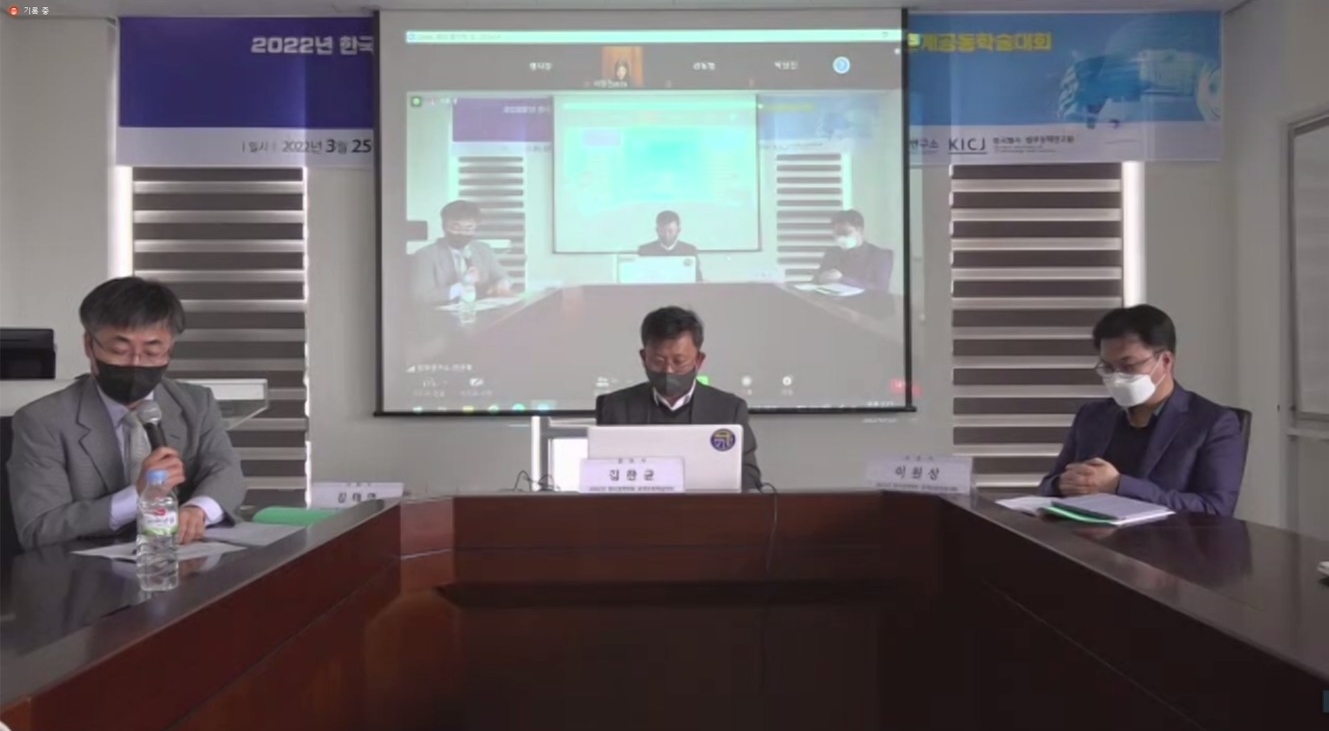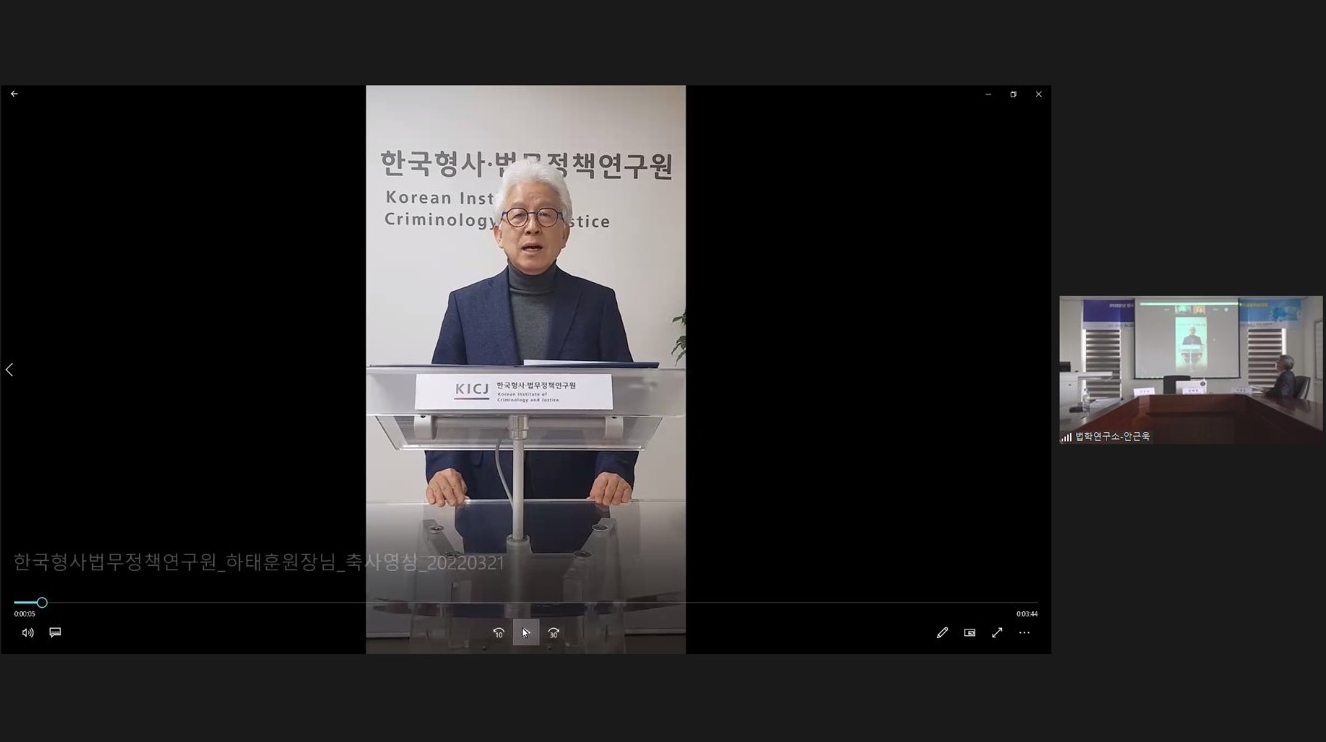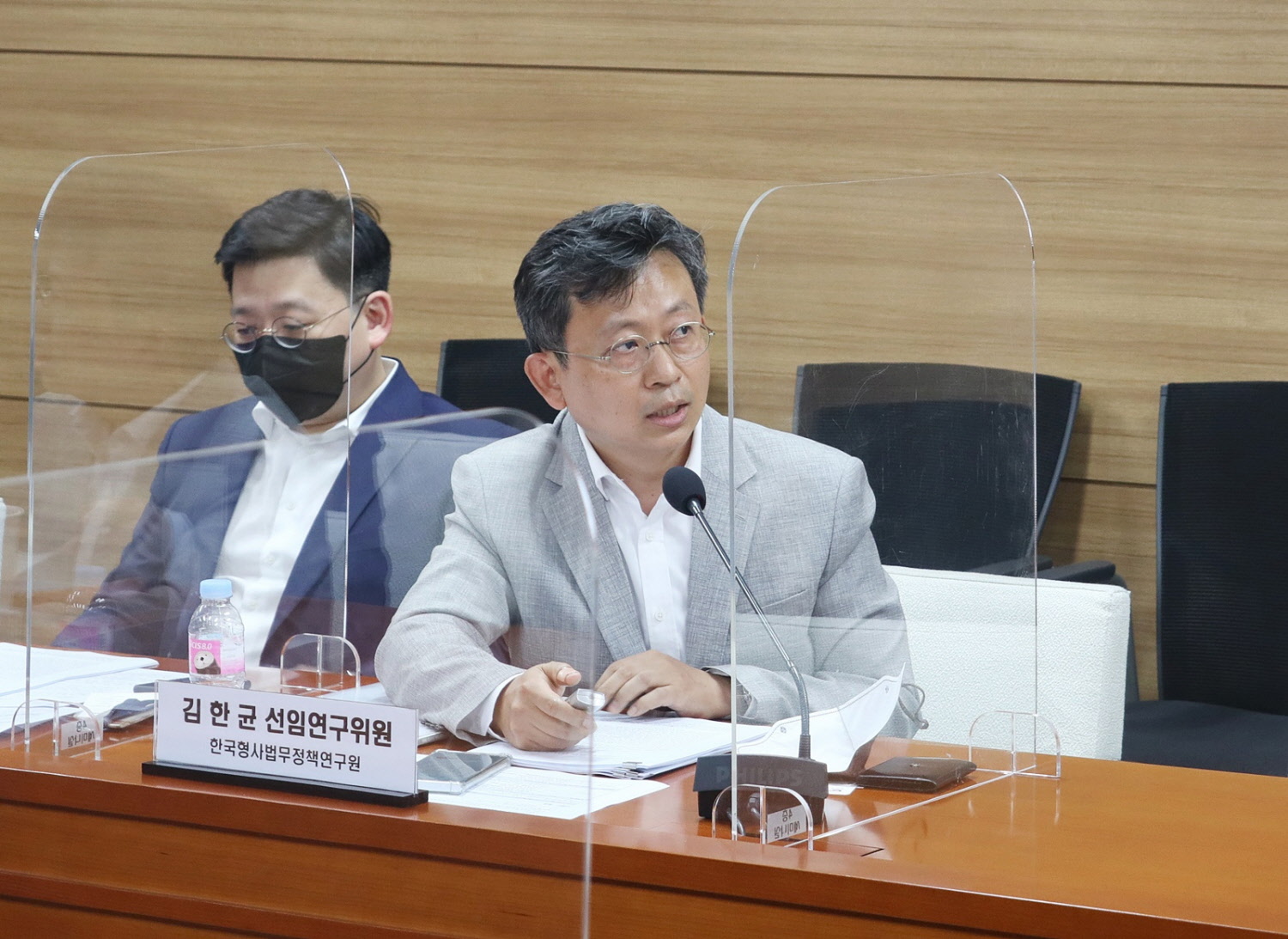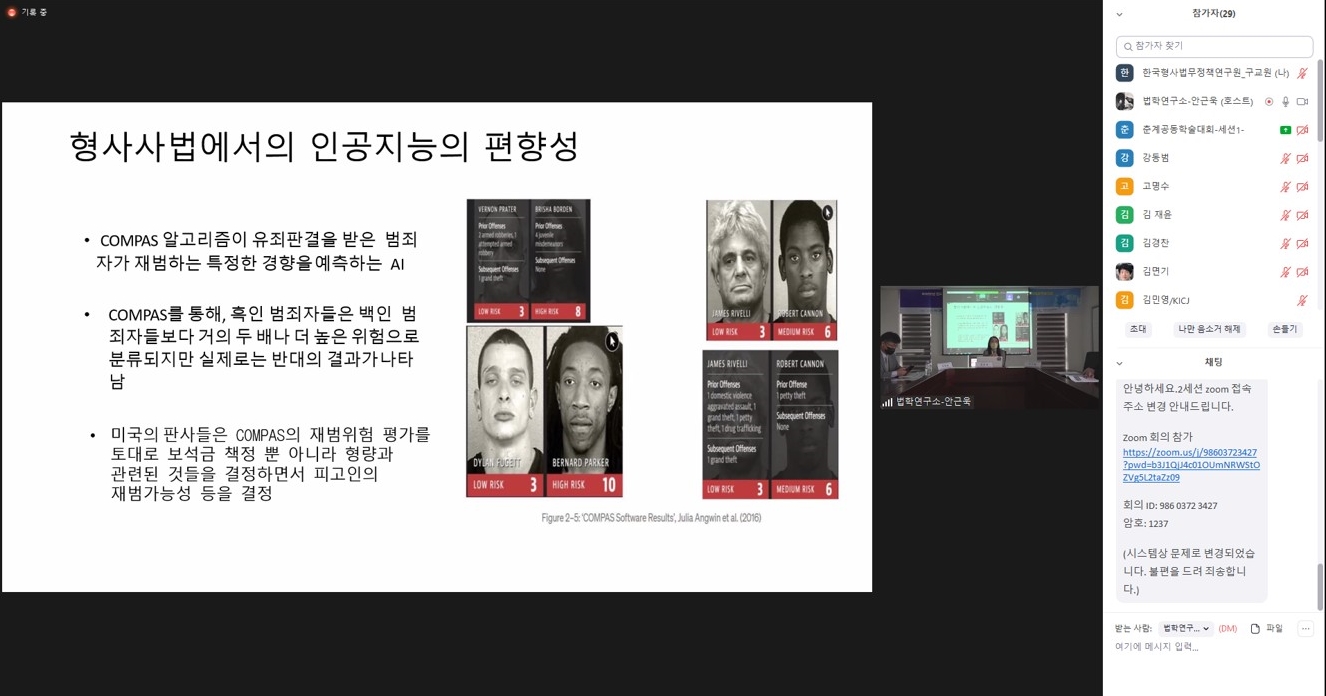- Date 2022.05.17
- Hit318

On March 25th, KICJ hosted the 2022 KICJ-Korean Association of Criminology-Jeonbuk National University Spring Conference on the topic of 'AI and Criminal Justice.' Organized as a hybrid event, the conference was held offline at Jeonbuk National University Law school (Room 501, 801) and online on Zoom. The conference provided an opportunity to examine current issues and challenges related to AI, a critical technology of digital transformation in the pandemic era. Moderated by Dr. Taemyeong Kim, director of the Law Research Institute at Chonbuk National University, the keynote speech was delivered by KICJ research fellow Hankyun Kim on the topic of "Ethical regulation and criminal legal control of high-risk AI technology." Prof. Won Sang Lee from Chosun University led the discussions. The first session opened with Dr. Jinhwan Chang from Korea University speaking on "Significance and limitations of the use of AI in recidivism risk assessment." Prof. Ro-seop Park from Hallym University participated in the discussion. Next, Prof. Byung-soo Kim from Dong-eui Institute of Technology talked about "Redevelopment of detention standards using AI," with Prof. Byungchun Choi from Chonnam National University overseeing the discussions. The second session began with Prof. Hee Jung Kim from Keimyung University speaking on "Ethics guidelines for AI and their implications on criminal justice policies." Prof. Giyeong Cho from Jeonbuk National University participated in the discussions. Finally, Profs. Eunkyung Jo and Gijoo Yang gave a joint talk on "Designing chatbots for interviewing sexual assault victims and its implications on criminal justice policies." Prof. Seong Jo Ahn from Jeju National University led the discussions.

Tae-hoon Ha, president of KICJ, remarked that "the issues discussed today―control of high-risk AI technology and ethics guidelines, use of AI in recidivism risk assessment, detention standards, and victim interviewing in sexual assault cases―will help set the direction and explore the challenges of AI-related criminal justice policies. We hope this conference is the first step in building a collaborative relationship in criminal justice research on the effects of new scientific technology."


